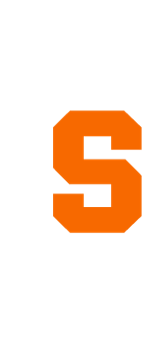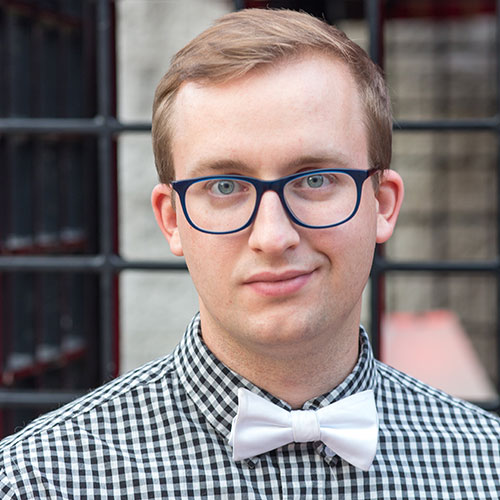Course Overview
In this immersive and engaging summer course, high school students will learn the fundamentals of sound engineering and audio production. Topics include, but are not limited to: microphone techniques, tracking, music production, editing, mixing, and mastering. The techniques that students will acquire in becoming familiar with this technology are used in real world applications such as music, live sound, film, animation, gaming, and more. Students will take an idea from the conceptual stages all the way to having a final product.
Every day, we will investigate different techniques of sound production. You’ll see and hear for yourself how these techniques influence the material we record, and ultimately affect your audience. The world of recorded sound is a vast and fascinating place. Whether you’re interested in creating Electronic, Rock, or Folk music, or your primarily interested in the Sound Engineering process, this is the course for you! This is a great course to get you started or to refine your techniques if you have already worked with sound.
If you do have the means, feel free to use your own projects, ideas, instruments, voice, and equipment for your work. This course runs on your creativity. You may also use your own videos, films, animations, songs, and game projects if you would like to work on sound for those or to even just show the class your work. Bring anything you would like to make noise with, and we’ll show you how to record it and what to do with your recordings. I’m happy to consult with you before this course begins if you’re still not entirely sure what equipment or software you need. You will work on and present two major projects throughout the two weeks of this course.
This course is open to students of all levels. Whether you are brand new to the course topics or have previous experience, this course offers something of value for anyone interested!
All students who successfully complete the course will receive a Certificate of Completion and have the opportunity to request a Syracuse University noncredit transcript.
Learning Objectives
- Learn how to decide which microphones to use for specific situations
- Be able to run an efficient recording session
- Work together in a group in order to come up with unique ideas
- Thoroughly comprehend Logic Pro X and similar DAW applications
- Gain a broad understanding of software instruments and audio plug-ins
- Master the studio environment
- Bring your portfolio to life!
Course Information
Course Prefix and Number: SCN 065
Format: On Campus (at Syracuse University)
Eligibility: Students must be of rising high school sophomore, junior, or senior status – or a 2024 high school graduate.
Credit: Noncredit
Grading: Pass/Fail
Cost:
- Residential: $4,295
- Commuter: $3,318
Program rates are subject to change and will be approved by the board of trustees. Discounts and scholarships are also available.
Program Information
Summer College – On Campus: Experience what college is really like: take a college-level course, live in a residence hall, have meals with friends in a dining hall, and participate in activities and events on campus.

“This course helped me learn how to create better sounding music! It also helped me to understand what this field of study involves and whether I would like to continue studying it in college (I would!). I enjoyed getting to practice and improve my skills in this area, and I found working on the projects very fun. The professor and TA were both almost always available outside of class to be reached by email and/or set up a Zoom meeting, and also held office hours. I learned many techniques that greatly improved my electronic music skills!”
— Summer College Sound Engineering and Audio Production Student, 2020
Course Dates and Details
| Program | Course Dates | Class Time (Eastern Time) | Credit/Noncredit |
|---|---|---|---|
| Summer College – On Campus | 2-Week Session I: July 6 – July 18, 2025 | MTWThF; 9 a.m. – 4 p.m. | Noncredit |
Course Requirements
Supplies
- Each student will need one (1) 16gb flash drive.
Students are not required to bring in their own equipment, audio programs, or projects as we have well-equipped workstations that will keep us busy. If you do have the means, feel free to bring your projects, ideas, instruments, and equipment. This course runs on your creativity. You may also bring your own videos, films, animations, songs, and game projects, if you would like to work on sound for those or to even just show the class your work. Bring anything you would like to make noise with, and we’ll show you how to record it and what to do with your recordings. The professor is happy to consult with you before you come to Syracuse if you’re still not entirely sure what to bring. Again, you are not required to bring an instrument, but the professor would encourage you to bring one (or several) if you are able to.
Typical Day
Tentative Schedule
This class runs Mondays through Fridays for the two-week duration of the program. Instructional sessions are taught from 9 a.m. to Noon. Then your knowledge is put to practice during the required studio sessions from 1 p.m. to 4 p.m., where students will work to improve their sound techniques and skills. Additional studio time can be [and is encouraged to be] scheduled with your T.A. any time after 5 p.m. until curfew. This time is typically used in order to continue refining a current project, or to work on something completely new and experiment with new techniques.
Students can look forward to various Summer College – On Campus activities to meet and connect with other students! Check out our On Campus Experience page for more information!
Field Trips
Students are scheduled to go on an interactive tour of Subcat Music Studios, which is a professional recording studio located in the center of Downtown Syracuse. Students will be required to meet in class the morning of the trip and take the Connective Corridor shuttle down to the studio together.
Faculty Bios
Michael Ahearn Wilcox

Michael Ahearn Wilcox is a Sound Engineer, specializing in live sound, sound design, audio production,
recording, mixing, and mastering.
Michael teaches a 2-week intensive ‘Sound Engineering and Audio Production’ course for high school students through Syracuse University’s Pre-College Programs, and has previously taught a ‘Field Recording and Sound Design’ course through the same program. He has also taught multiple semesters of the Intro and Advanced courses of ‘Audio Production and Recording’ at Syracuse University through the Computer Art and Animation program in VPA’s Department of Film and Media Arts. He was the Live Sound Engineer of the Turquoise Tiger nightclub at Turning Stone Resort Casino for over three years. He is currently putting his skills to use as the Sound Engineer and Lighting Technician of the Events Department at Mohawk Valley Community College in Utica, NY, where he also teaches a Technical Theater course within the college’s Theater program. Michael has worked as a freelance Sound Designer for short films, and has a passion for Sound Design for videogames. He enjoys writing his own music, such as electronic music, soundscapes, and indie pop-rock. Along with coding his own instruments and effects in Max, a node-based audio/visual programming language, he has been known for turning his Xbox 360 controller into a MIDI effects controller for live performances, and plans on doing the same with Switch Joy-Cons.
